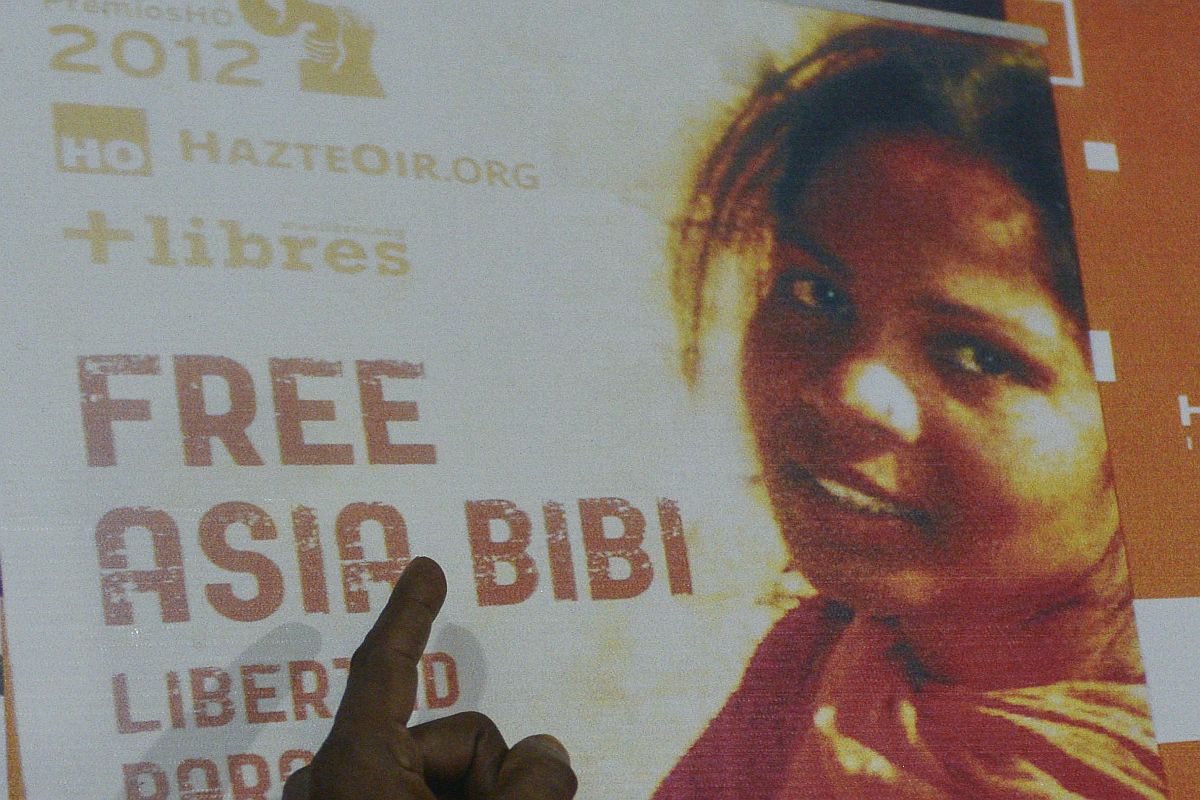Asia Bibi, a Christian woman who was convicted of blasphemy and acquitted by Pakistan’s Supreme Court, has left the country for Canada, officials said on Wednesday.
“Asia Bibi has left the country. She is a free person and travelled on her independent will,” Dawn online reported citing a Foreign Office source.
Advertisement
Though the Pakistani media reports did not specify where Bibi has gone or when she left, CNN quoted her lawyer Saif Ul Malook as saying that she is in Canada.
She has been separated from her family and living in safe houses since the 2018 overturning of the sentence. Her children are already in Canada.
Asia Bibi, a 47-year-old mother of five, was convicted in 2010 after being accused of insulting Islam in a row with her neighbours. She always maintained her innocence but has spent most of the past eight years in solitary confinement.
Bibi was released from prison on November 7 last year and transferred to a “safe” location, according to the government. Her lawyer fled the country in fear for his life.
Earlier, Italy had said that it was working to help Asia Bibi leave Pakistan, amid warning from the woman’s husband that her life was in danger. Her husband, Ashiq Masih, had also urged US President Donald Trump, and the UK and Canada premiers to help her leave Pakistan.
Several countries have offered her asylum.
The trial stems from an argument Asia Bibi had with a group of women in June 2009.
They were harvesting fruit when a row broke out about a bucket of water. The women said that because she had used a cup, they could no longer touch it, as her faith had made it unclean.
Prosecutors alleged that in the row which followed, the women said Asia Bibi should convert to Islam and that she made offensive comments about the Prophet Muhammad in response.
She was later beaten up at her home, during which her accusers say she confessed to blasphemy. She was arrested after a police investigation.
Acquitting her, the Supreme Court said that the case was based on unreliable evidence and her confession was delivered in front of a crowd “threatening to kill her”.
The apex court’s quashing of Bibi’s sentence led to violent protests by religious hardliners who support strong blasphemy laws, while more liberal sections of society urged her release.
Pakistan’s anti-blasphemy law was established during British colonial rule to avoid religious clashes, but several changes to the law in the 1980s promoted by the then-military dictator, General Zia-ul-Haq, led to its abuse.
(With agency inputs)











